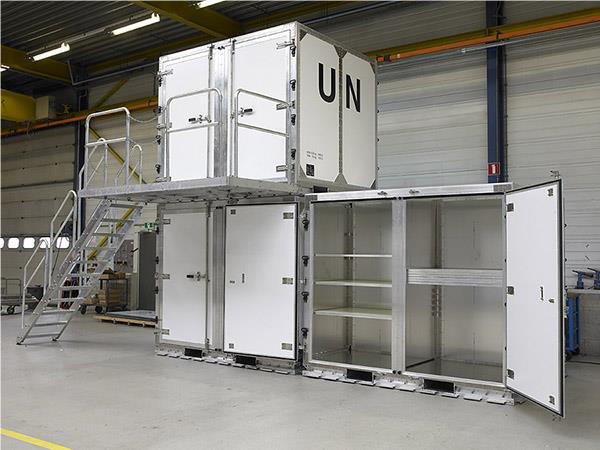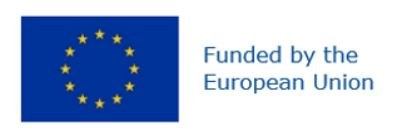Cluster 3: ONELAB
Introduction
“ONELAB: Orchestrating next-generation mobile modular laboratories for pandemic monitoring preparedness” is a project that involves 22 partners, including universities, SME’s and First Responders.
Project description
Expert opinion from across the world recommends, & calls for, modular laboratory systems to be made available for disease monitoring missions. The WHO calls these, “Rapid Response Mobile Laboratories” (RRML). ONELAB will develop modular RRML for rapid, flexible, scalable, multi-scenario deployments into the widest range of possible settings.
These next-generation facilities will support next-generation measurement-technologies/methodologies and, through satellite communications, form wide-area GIS enabled laboratory information systems. Thus, simultaneously providing point-of-need disease detection, along with high-level situational awareness.
ONELAB will also develop advanced measurement systems for a staged disease detection response. Exploiting a panel of acute viral infection biomarkers enables early detection of disease during its asymptomatic incubation. Using this at the outbreak of disease, when much is still undefined, supports effective immediate & targeted public health interventions. Additionally, using proven methodologies developed in response to COVID 19, ONELAB will develop & demonstrate a workflow for semi-autonomous disease specific biomarker discovery. This application & delivery of agile science enhances the capability & capacity of current disease testing strategies substantial.
RRMLs are only as good as the skilled teams who operate them. So, ONELAB builds world-wide networks & partnerships of experienced experts to: define contextually-aligned best practice; develop a consensus-driven concepts of operation; and, disseminate this though a pandemic testing playbook. We will develop capability & capacity with training & networking-events that continue beyond the project. Finally, community mass-testing requires engagement & acceptance from all citizens, which is why we will engage with the public, & produce a citizen’s guide to mass community testing, supported by educational outreach resources.
Objectives
These are the objectives of ONELAB:
- Objective 1: End-User direction assessment and evaluation of: existing solutions; gaps; and lessons learnt from previous pandemics; leading to critical and in-formed evaluation of project outcomes and impacts.
- Objective 2: Next Generation modular mobile laboratory systems designed developed and delivered to provide analytical quality by design in accordance with ICH 2 guidelines to meet wide range of monitoring mission goal.
- Objective 3: Staged diagnostic capability and capacity for delivery of reliable and unambiguous detection and identification of infectious agents across all pandemic phases.
- Objective 4: ICT and data hub for field data communication and processing to facilitate decisionmaking by chain of command and authorities
- Objective 5: Defining, classifying, and incorporating societal factors, constraints, and heuristics
- Objective 6: Next generation CONOPS for mobile pandemic monitoring operations.
- Objective 7: Establish a worldwide pandemic community-testing forum (WPCTF)
- Objective 8: Promote international cooperation on pandemics with Japan, build scalable capacities for joint multinational intervention
Role of Ghent University
UGent is involved mainly with WP4, which is dedicated on the design, development and delivery of RRMLs, as well as demonstrating through clinical studies biomarker detection of viral infection through analytical measurements at three different stages: rapid triage, diagnostic and prognostic measurements.
Key Objectives
- Development of a data analytics workflow, incorporating advanced multivariate statistical, machine learning, and AI algorithms for analysing high-dimensionality data for recognition of novel biomarkers.
- Transfer discovery to delivery to achieve bench to bed through a coordinated action involving close collaboration between partners.
- Develop the proposed highly mobile platforms to enhance clinical capability and capacity through the rapid diagnosis of infection, and for theranostic assessment, for example trial vaccinations and treatments.
- Refine and automate features such as data acquisition and interpretation and software integration, making the technology simple-to-use (“one button device”) during routine clinical use through intuitive point and click graphical user interfaces. Implementation of the diagnostic panel at the Point of Care (PoC) and rigorous clinical tests to verify successful translation and application.
Website
Contact
Dr. Maarten Dhaenens
Department Pharmaceutical Biotechnology
Phone number: +32 9 264 83 56
E-mail
Funding info
Disclaimer
Funded by the European Union. Views and opinions expressed are however those of the author(s) only and do not necessarily reflect those of the European Union or the European Research Executive Agency (REA). Neither the European Union nor the authority can be held responsible for them.

